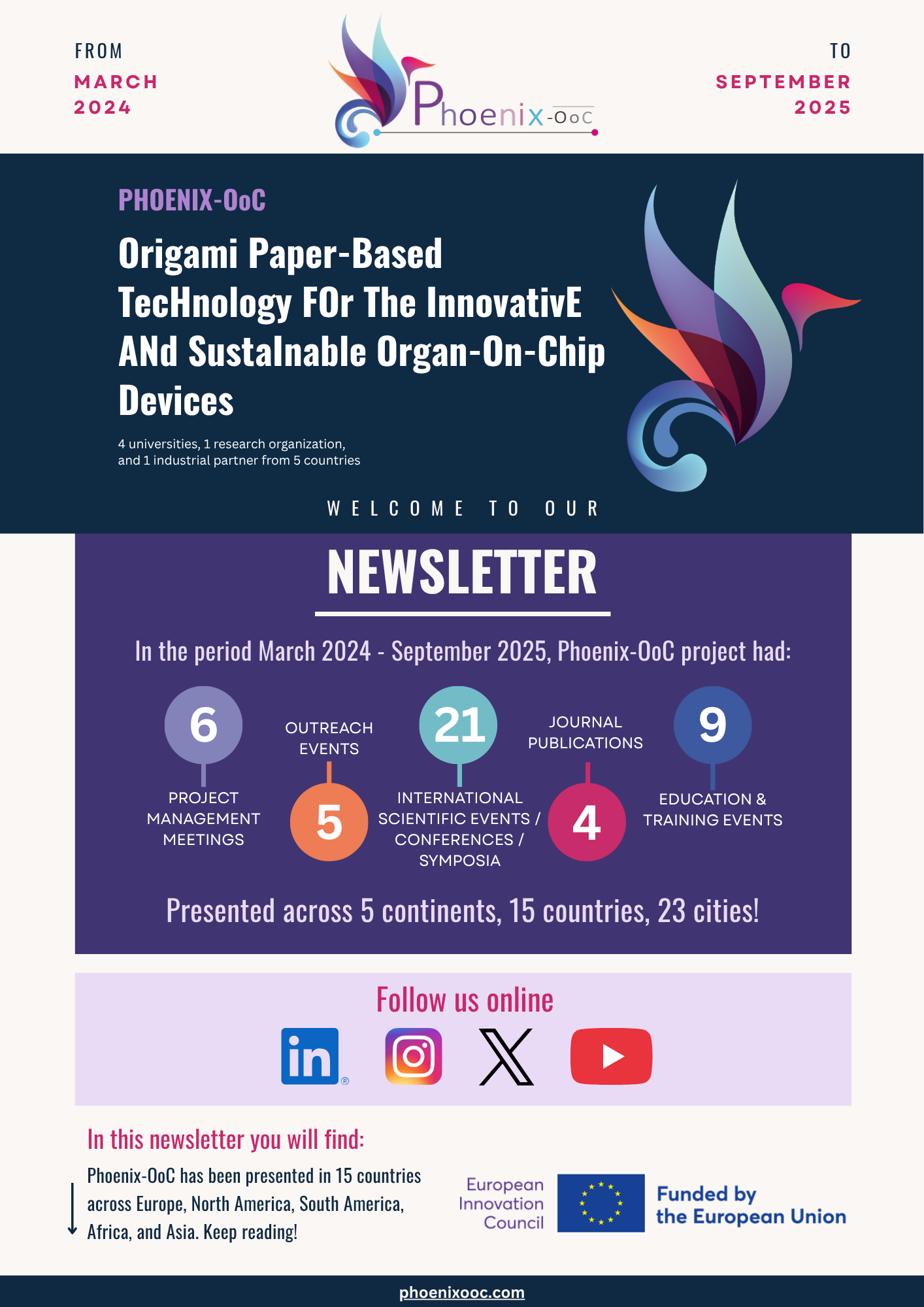PHOENIX-OoC
Origami Paper-based tecHnology fOr the innovativE aNd sustaInable Organ-on-Chip devices
4 universities, 1 research organization, and 1 industrial partner from 5 countries


Phoenix-OoC Newsletter
Explore the key milestones, scientific outreach, and training activities that brought
the Phoenix-OoC project to 15 countries across 5 continents.
Sustainability is one of the most important concepts nowadays
Sustainability is one of the most important concepts nowadays, being able to drive activities in several sectors, namely environment preservation, society, and economy.
In Analytical Chemistry, the development of sustainable devices was boosted by the introduction of microfluidic paper-based analytical devices (μPADs) whose advantages, however, are not only confined to the concept of sustainability.


Indeed, paper as a functional material, confers unprecedented features to μPADs.
However, paper-based devices remain exploited as only analytical tools, but have not (yet) been adopted by the Organ-on-Chip (OoC) world. The objective of our project is to alter this scenario.
Our Expertise
PHOENIX-OoC consortium brings together 6 partners, 4 universities,
1 research organization, and 1 industrial partner (SME), 5 from four EU and associated countries (Italy, Sweden, Spain, Serbia), and one non-EU member: Switzerland. Our consortium comprises world-renowned experts in paper-based biosensors, in vitro/vivo studies, modelling, microfluidics, biomaterials, and joint tissue engineering.
PHOENIX-OoC will radically change the OoC field
PHOENIX-OoC will radically change the OoC field by making use of paper’s versatile properties, and developing OoC devices using paper in origami configuration.
Cell co-cultures
- Cell co-cultures with the aim to better simulate different organ tissues.
(bio)sensors integration
- (Bio)sensors integration with the aim of on site/continuous monitoring of cells status/response to stimuli.
Performing accurate pharmacological studies
- The ultimate goal is to perform accurate pharmacological studies.
The main new idea
The primary innovative concept lies in the introduction of a technology capable of producing a diverse range of electrochemical devices with novel functionalities. This technology enables the creation of customizable, ready-to-use cell culture models for drug screening purposes. Given the complexity of Organ-on-Chip (OoC) systems in comparison to μPADs, the consortium has assembled a diverse array of partners, each possessing essential skills and expertise, drawn from leading European scientists and entities in the field.
